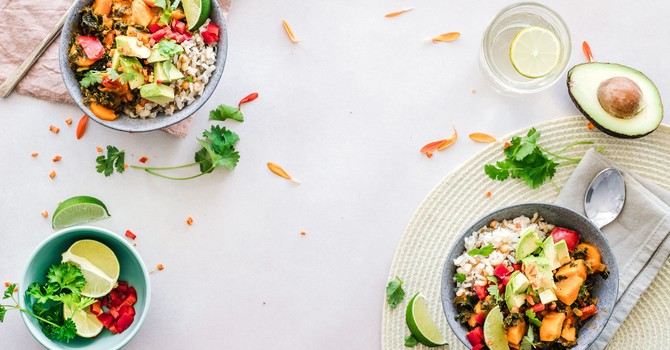The struggle is real — and it’s not your fault
If you live with ADHD, you probably already know what you “should” be eating. You’ve read the advice, downloaded the meal plan, maybe even meal-prepped once or twice — but following through consistently? That’s a whole different story. You’re not lazy or unmotivated. ADHD makes the execution of healthy habits difficult. Your brain craves novelty, instant reward, and dopamine — and when life gets busy, food becomes one of the quickest (and most reliable) ways to get that hit. And if you’re an empath like me, being around people all day can leave you completely drained. By the time you get home, all you want to do is sit in front of the TV and eat candy. When I’m mentally exhausted, I crave sweet things. When I’m tired, I crave sweet things. And those cravings? They’re intense. As an ADHD dietitian in Alberta and Saskatchewan, I see this pattern every day — it’s not a lack of willpower, it’s how our brains are wired. When exhaustion and dopamine collide many people experience emotional eating with ADHD, especially after long, overstimulating days. Your brain is running low on dopamine, and sugar offers quick comfort and energy. The problem is that sugar highs often lead to more crashes, fatigue, and frustration. You’re not failing at healthy eating — your ADHD brain is literally wired to seek stimulation when it’s depleted. Understanding that is the first step to change. The sleep, sugar, and energy connection when I don’t sleep well, my body craves carbs like crazy. That’s because lack of sleep affects the hormones that control hunger (ghrelin and leptin) and interferes with dopamine regulation — making ADHD symptoms and food cravings worse. On the other hand, when I exercise — especially in the morning — I notice I crave healthier foods naturally. Movement boosts dopamine, serotonin, and energy, which helps with focus and motivation to eat well. This is one of the biggest patterns I see in my ADHD nutrition clients in Alberta and Saskatchewan — when sleep and movement routines improve, food choices become so much easier. When eating feels like “too many steps” sometimes it just feels like too much work. Too many steps to make a meal. Too many decisions. Too many dishes. Even as an ADHD-focused dietitian, there are nights when I stare at the fridge and think, “Nope. Too much.” Most people who come to me already know what to do — they just need tools, structure, and accountability to keep doing it. That’s where working with an ADHD dietitian can make a huge difference.
Routine is everything (but so hard with ADHD)
Routine is key for me. I’m a creature of habit — which, let’s be honest, is not easy when your brain thrives on novelty and distractions. But the little systems make a huge difference. For example, I went to the dollar store and bought pill organizers for my medications and supplements. Every Sunday, I fill them up for the whole family so we don’t have to think about it in the morning. It’s one less step, one less decision, and one more thing off our mental load. So many of my ADHD clients forget to take their supplements — not because they don’t care, but because ADHD brains forget the “boring maintenance stuff.” These small systems build consistency without relying on motivation.
Keep meals ridiculously simple
Meal planning can feel overwhelming. I’ve learned that I’m most successful when I plan for three days at a time — not a whole week. I’m a big advocate for leftovers, so I batch cook when I can and plan easy repeat meals for nights packed with kids’ activities. And please — don’t feel like you always have to follow a recipe or make something fancy. I actually find recipes really overwhelming at 5 p.m. when I’m already overstimulated. These days, I rotate through about 10 go-to meals and sprinkle in new ones when I have the energy. That’s it. It works, and it keeps decision fatigue low — a crucial ADHD nutrition strategy.
A small habit that makes a big difference
One of the biggest game-changers for me and my family is simple: eat your vegetables first. When you’re most hungry, they actually taste the best — and you’re more likely to eat them! This small shift helps balance blood sugar, increase fiber, and even support weight management. It’s easy, effective, and brain-friendly.
Bottom line: work with your brain, not against it
If you have ADHD, the goal isn’t perfection — it’s creating systems that work for your unique brain. Whether that’s three-day meal planning, batch cooking, supplement organizers, or rotating simple meals, it’s about reducing friction wherever possible. You probably already know what to do. You just need the right tools, accountability, and strategies that make it actually happen — that’s where an ADHD dietitian in Alberta or Saskatchewan can help.
Ready to make food feel easier?
If you’re tired of feeling stuck in the “I know what to do but can’t do it” cycle, I’d love to help you create realistic routines and flexible structure that work for your ADHD brain. Book a free consult with me.



